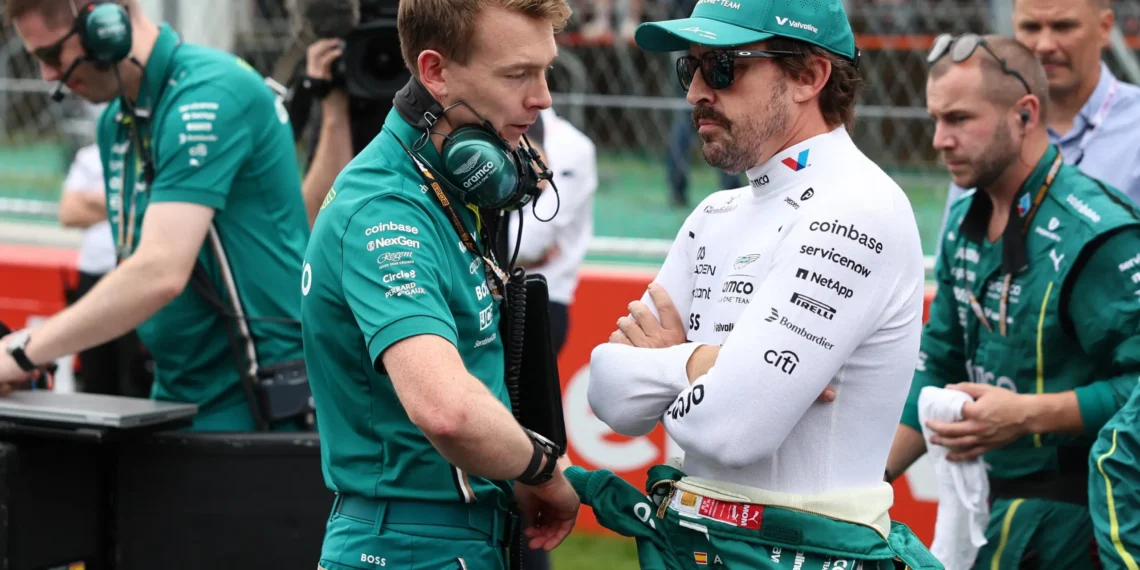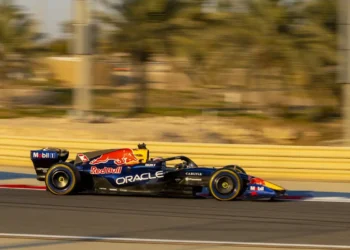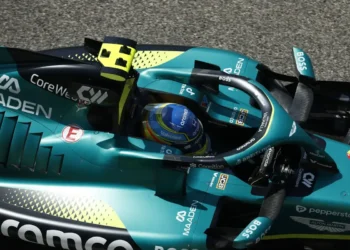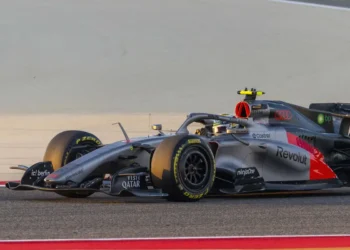Fernando Alonso Unleashes Controversial Truth About F1’s Grand Prix Format: Is Society to Blame?
In a stunning revelation that could shake the very foundations of Formula 1, Fernando Alonso has boldly declared that the real crisis facing the sport isn’t the length of the races, but rather a societal issue linked to today’s youth. As discussions heat up about potential changes to the F1 format, including more sprint races and shorter grand prix events, Alonso’s comments bring a fresh perspective to the table.
Stefano Domenicali, the chief of Formula 1, recently highlighted that the sport’s highlights are achieving unprecedented viewership, suggesting a shift in audience preferences. “There’s the issue of race length. We believe it’s a bit too long for younger viewers,” Domenicali stated, pointing out that highlight reels are capturing the attention of a new generation who may not want to sit through the full race.
But Alonso, the seasoned driver for Aston Martin, argues that the problems run deeper than mere race duration. “It’s a problem of society and the kids, but not the sport,” he asserted. His comments resonate strongly in a world where attention spans are dwindling and instant gratification is the norm.
The proposed changes could lead to a radical transformation in race weekends, with Domenicali acknowledging that discussions are underway to possibly increase the number of sprint weekends and explore alternative formats. “We need to understand whether to increase them, how to increase them, and whether to use different formats,” he emphasized. The former Ferrari team principal seems adamant that the traditional race weekend is on the brink of a significant evolution.
Despite the buzz, Alonso remains skeptical about the necessity for change. “I don’t think it’s a problem with the sport,” he said candidly. Even as discussions swirl around the paddock, he is prepared to sit back and watch from the sidelines, possibly tuning in from his couch. “When that happens, I will be in front of the TV,” he quipped, indicating a detachment from the high-stakes decision-making.
Interestingly, Alonso drew a parallel with football, noting that even lengthy matches hold viewers’ attention despite their duration. “No one is talking about having 60-minute football matches,” he pointed out, reinforcing his belief that the essence of the sport should not be compromised for fleeting trends.
His former teammate, Esteban Ocon, echoed similar sentiments, stating, “There’s no need to make a big change about what we have.” Ocon, who has witnessed numerous format shifts throughout his career, cautioned against drastic changes, particularly those that would lead to sprint races at every event. “Going to a MotoGP stage would be a bit extreme,” he remarked, suggesting that while some races could benefit from slight adjustments, the historical integrity of grand prix racing should be preserved.
As the debate rages on—balancing tradition with the need for modern appeal—Alonso’s perspective serves as a clarion call to remember the roots of the sport. With F1’s future hanging in the balance, one thing is clear: the conversation about race formats is only just beginning, and the implications could redefine what it means to be a fan of Formula 1 in the years to come.










